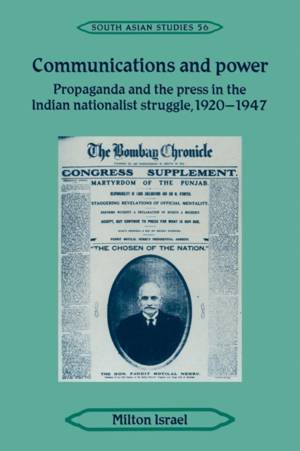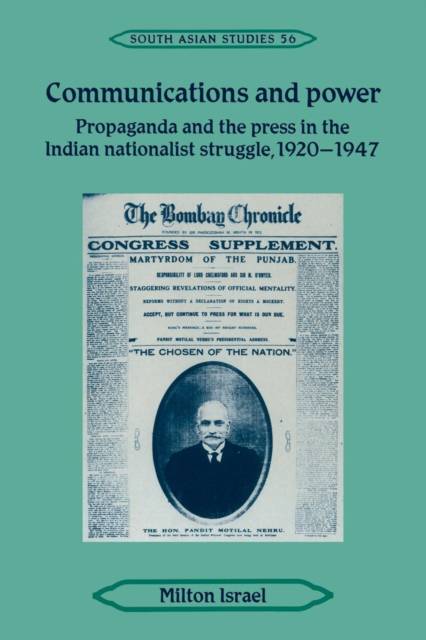
- Afhalen na 1 uur in een winkel met voorraad
- Gratis thuislevering in België vanaf € 30
- Ruim aanbod met 7 miljoen producten
- Afhalen na 1 uur in een winkel met voorraad
- Gratis thuislevering in België vanaf € 30
- Ruim aanbod met 7 miljoen producten
Zoeken
Communications and Power
Propaganda and the Press in the Indian National Struggle, 1920 1947
Milton Israel
€ 72,45
+ 144 punten
Uitvoering
Omschrijving
At the end of the First World War, India's government officials and nationalist politicians began to recognize the need for an organized communications network. The challenge for government and nationalists alike was to create a propaganda machine that could disseminate news to a large and diverse population, at the same time eliciting the desired political response. Milton Israel describes the role of the press in the last stage of the nationalist struggle in India on the eve of the British departure.
Specificaties
Betrokkenen
- Auteur(s):
- Uitgeverij:
Inhoud
- Aantal bladzijden:
- 354
- Taal:
- Engels
- Reeks:
- Reeksnummer:
- nr. 56
Eigenschappen
- Productcode (EAN):
- 9780521467636
- Verschijningsdatum:
- 14/04/1994
- Uitvoering:
- Paperback
- Formaat:
- Trade paperback (VS)
- Afmetingen:
- 152 mm x 227 mm
- Gewicht:
- 489 g

Alleen bij Standaard Boekhandel
+ 144 punten op je klantenkaart van Standaard Boekhandel
Beoordelingen
We publiceren alleen reviews die voldoen aan de voorwaarden voor reviews. Bekijk onze voorwaarden voor reviews.








